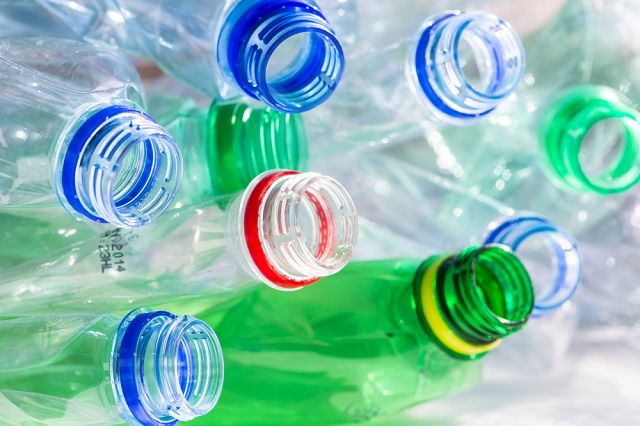
Don Pablo/Shutterstock.com
Plastic recycling is a significant part of today's society, however not all the plastic we throw away is the same. Identifying and categorizing plastic materials can be a tricky business. Now, Researchers from Ludwig-Maximilians-Universität München (LMU) have developed a simple process that increases the efficiency of recycling plastic waste.
The novel method enables automatic identification of the polymer constituents of different types of plastic.
Photoexcitation - exposure to a brief flash of light, causes plastics to emit fluorescent light and this emission decays with a specific pattern over time. The researchers used photoelectric sensors to measure the light intensity and emission decays. This pattern is like a fingerprint for the particular type of polymer material in the plastic. The different polymers in plastic manufacture have specific fluorescence lifetimes, their chemical nature can be determined using the decay curve. Errors are drastically reduced due to this method of detection.
Most polymers are processed by melting at high temperatures. The molten material is then injected into molds to obtain desired products.. When the recycled plastic is reheated, its properties can drastically change except for the case where the sorted material is highly pure. Even a low level of contamination can affect the properties of the recycled product. This is due to the chemical incompatibility of polymers with one another. Recycled plastics are not used for manufacturing high-quality plastic products. This setback is set to be changed by the new method developed by LMU researchers, which enables sorting of the plastics at 1.5 tons per hour.
Professor Heinz Langhals of LMU’s Department of Chemistry, who led the research team, states that polymers form the basis for sustainable recycling and that products like PET bottles could be made into synthetic fiber and used for waterproof clothing. The new method for recycling of plastic waste has been published in the journal “Green and Sustainable Chemistry”.
References